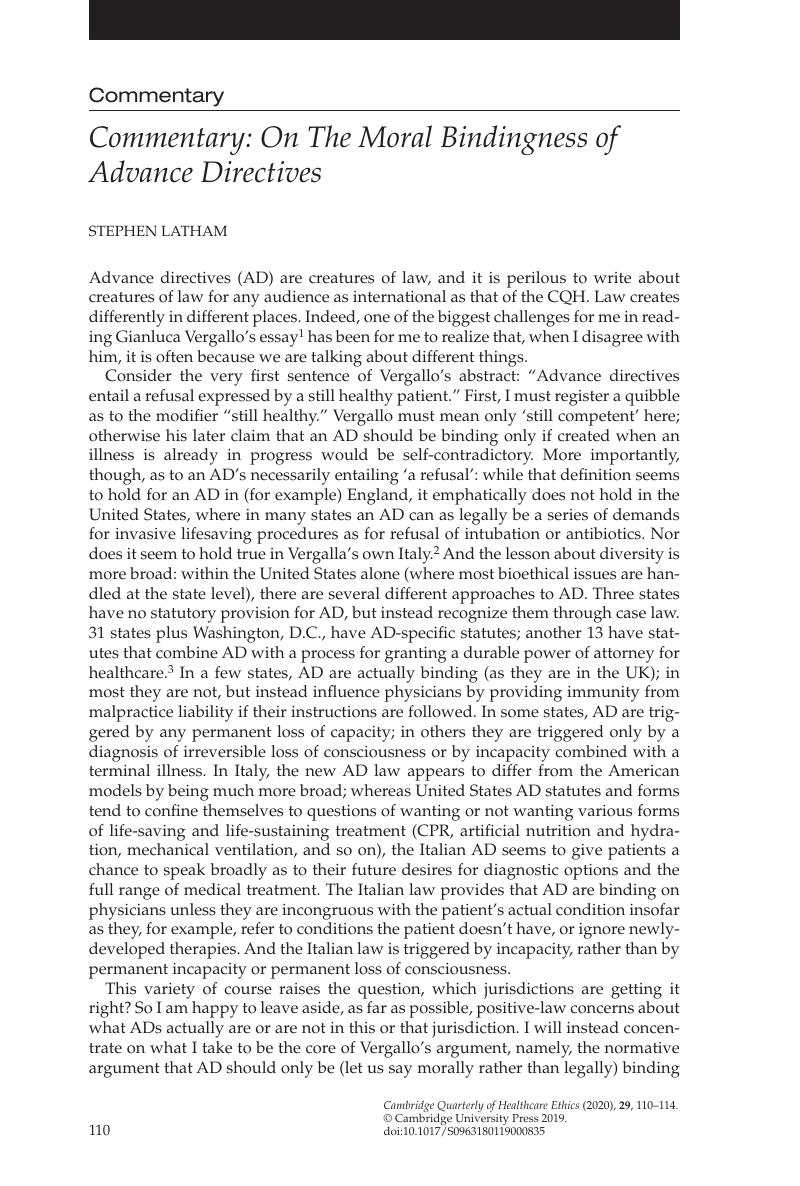Article contents
Commentary: On The Moral Bindingness of Advance Directives
Published online by Cambridge University Press: 20 December 2019
Abstract

- Type
- Special Section: Open Forum
- Information
- Copyright
- Copyright © Cambridge University Press 2019
References
Notes
1. Vergallo, G. Advance health care directives: Binding or informational value? Cambridge Quarterly of Healthcare Ethics 2020;29(1).Google Scholar
2. I use hedging language about what “appears” or “seems” to be true of the December, 2017 Italian law because I am wholly reliant on English-language summaries of it, e.g., Ciliberti, R, Gorini, I, Gazzaniga, F, De Stefano, F, Gulino, M. The Italian law on informed consent and advance directives: New rules of conduct for the autonomy of doctors and patients in end-of-life care. Journal of Critical Care 2018;48:178–82.CrossRefGoogle ScholarPubMed
3. Gunter-Hunt, G, Mahoney, JE, Sieger, CE. A comparison of state advance directive documents. The Gerontologist 2002;42(1):51–60.CrossRefGoogle ScholarPubMed
4. Dworkin, R. Life’s Dominion: An Argument About Abortion, Euthanasia and Individual Freedom. New York: Vintage Books; 1994.Google Scholar
5. Dresser, R. Dworkin on dementia: Elegant theory, questionable policy. The Hastings Center Report 1995;25(6):32–8.CrossRefGoogle ScholarPubMed
6. Hawkins, J. Well-being, time, and dementia. Ethics 2014;124(3):507–42.CrossRefGoogle Scholar
- 1
- Cited by


